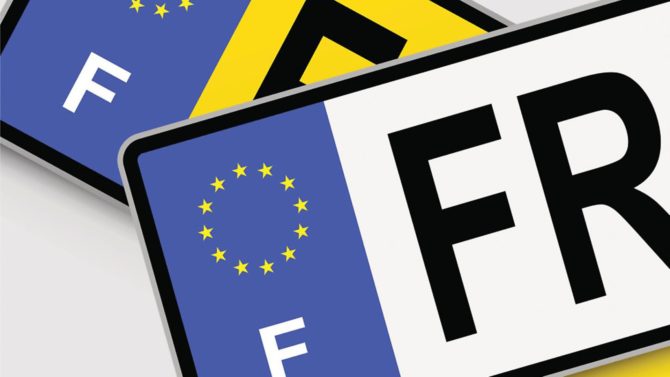How to import a car to France

If you are planning to take your car with you to France from an EU or non-EU country, these are the regulations you will need to comply with and the paperwork you will need to complete
Customs and Excise
All purchases of new or second-hand cars from an EU member state into France are not subject to customs procedures. Similarly, if you are moving to France from the UK or another EU country, your car – new or old – will not require customs clearance.
If you move from a non-EU country, however, there are certain conditions. You may be exempt from customs formalities when importing your car if you have lived in the country you are moving from for at least 12 months, have used the car for at least six months in that country prior to emigrating, and have adhered to any customs or tax requirements in the country where the vehicle comes from. To benefit from the exemption, the car must be transferred to France within 12 months. Of course, you will be asked for all the requisite documents to prove eligibility.
VAT (or TVA) on new cars
If you are moving with a new car (a “new” car is defined as a car that has been in circulation less than six months, or that has clocked up fewer than 6,000 km), you will not be required to pay additional VAT (or TVA as the French call it) in France as it is considered part of your estate and is exempt under the change of residency ruling.
But for those already resident in France, either full-time or part-time, when you buy a car from another EU member state to drive in France, you will be required to pay VAT on the purchase in France. So, make sure you don’t pay VAT at the point of purchase, or you risk paying it twice. If you have already paid the VAT, the French will still demand payment and tell you to seek reimbursement from the tax authorities in the country where the vehicle was bought.
To pay the VAT in France on an imported car, contact your local tax office (Centre des Finances Publiques, also known as the Trésor Public). The current rate of TVA is 19.6%.
_______________________________________________________________________________________________________
Related articles
How to buy and register a car in France
________________________________________________________________________________________________________
Paperwork
Quitus Fiscus
Even if you don’t have to pay VAT on your car import, you will need to visit the tax office to obtain a valid tax certificate (also known as quitus fiscal) in order to register your car in France, and, by default, obtain a French number plate. You have 15 days following the arrival of your car in France in which to make the request (ask for the form ‘modèle 1993 VT REC’). The tax authorities will ask for the following documents:
• An original and copy of the purchase invoice, or equivalent, issued by the vendor
• An original and copy of the vehicle registration certificate issued in the foreign country (NB, the car must already be fitted with valid foreign number plates)
• Also, you may be required to provide a sworn translation of the documents if there is any doubt or difficulty understanding the content.
Certificate of conformity
The certificate of conformity has been the same for vehicles in EU countries since 1996. In most cases, this certificate will have been provided when you purchased your car in the UK. If, for any reason your car does not conform to EU environmental and security standards, then it may not be considered roadworthy by the French authorities.
MOT
If you are importing a car from the UK that is more than four years old and has not passed an MOT test within the previous six months, you will have to pass an MOT (contrôle technique) in France before you can register the car with the French authorities.
To pass the contrôle technique, you will need to change the headlights for French ones so that they dip correctly for driving on the right-hand side of the road. This is likely to set you back a few hundred euro, but ask your garage to try sourcing second-hand headlights as this would work out much cheaper.
MOT tests in France are carried out by specialist registered contrôle technique centres. Tougher tests have now been introduced and the average cost of a control will increase to around €80 on average.
If your car passes the various checks, you receive a sticker to add to the vehicle registration papers (known as the carte grise or certificat d’immatriculation) and a dated sticker to display in the car window. The centre also provides a written diagnostic indicating any potential problem areas.
Should your car fail any part of the test, the written report will state what needs to be done and you then have two months in which to get your garage to carry out the necessary repairs and return for a free counter control. Since May, under tighter controls aimed at reducing the number of serious accidents on French roads, if your car is found to have one of the 146 identified critical failures, you have just 24 hours to make the repairs or risk facing a fine of €135.
_________________________________________________________________________________________________________
Related articles
50 French words and phrases you need to learn if you’re driving in France
Share to: Facebook Twitter LinkedIn Email


